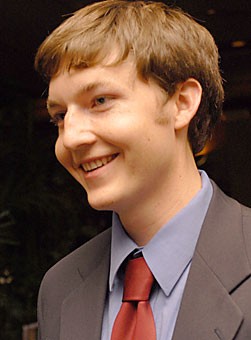An agreement signed yesterday kicked off a partnership between the UA and Nanjing Normal University (NNU) in China and was celebrated last night at Gee’s Garden Restaurant.
A handful of UA deans, NNU delegation members and students involved in the program attended the dinner.
The partnership, which was signed by President Robert Shelton and Song Yongzhong, president of NNU, aims to get more students involved in NNU-UA exchanges and build new programs that reach out to graduate students.
“”It’s a very general cookie-cutter agreement that allows us to now take the steps toward what we want to do,”” said Henry Tsang, program director of Yangtze International Study Abroad (YISA).
One of the main ideas to come from this agreement will be a new program designed for UA masters programs.
“”Chinese graduate students are very unbalanced,”” Tsang said. “”They have great math and science skills but very poor communication and technical writing skills.””
The collaboration would also give Chinese students a two-year “”pre-program”” in China studying in a school with American students before coming to the U.S. for graduate school.
UA undergraduates have been traveling abroad to Nanjing, a Chinese city within the Jiangsu Province with a population of 7 million, since fall 2006.
This initial collaboration came about with help from YISA as a way to give American students a cultural and educational experience in China, which is one of the economically fastest-growing countries in the world.
Nick Borst, an international studies junior, was among the 23 students in the first batch of this program.
“”China has a booming economy and in the future will probably become a super-power,”” Borst said. “”China’s the one to go after because they are becoming so strong.””
Eric Deschamps, Eastern Asian study abroad adviser, said this program is special because students do not have to know the language to have a wonderful experience.
Because China’s economy and business market is growing and fusing with America’s so rapidly, it will also give students a professional edge, Tsang said.
“”And there is no better way to learn it than by living there,”” Tsang said.
Ed Donnerstein, dean of the College of Social and Behavioral Sciences, said he thinks each of the departments in the college can benefit from the collaboration.
“”The ability to exchange graduate and undergraduate students is wonderful,”” Donnerstein said. “”We will be able to exchange researchers and professors and it will open up a lot of doors for lots of departments.””
Research is another part of this collaboration since the UA is a Research I institute and many graduate student researchers working at the UA are, in fact, Chinese.
Tsang said a collaboration will help all aspects of each university, including research.
“”We need to add Chinese students to the equation in an efficient way,”” Tsang said. “”And at the same time American students can learn the heavy effects China is having on their economy.””









